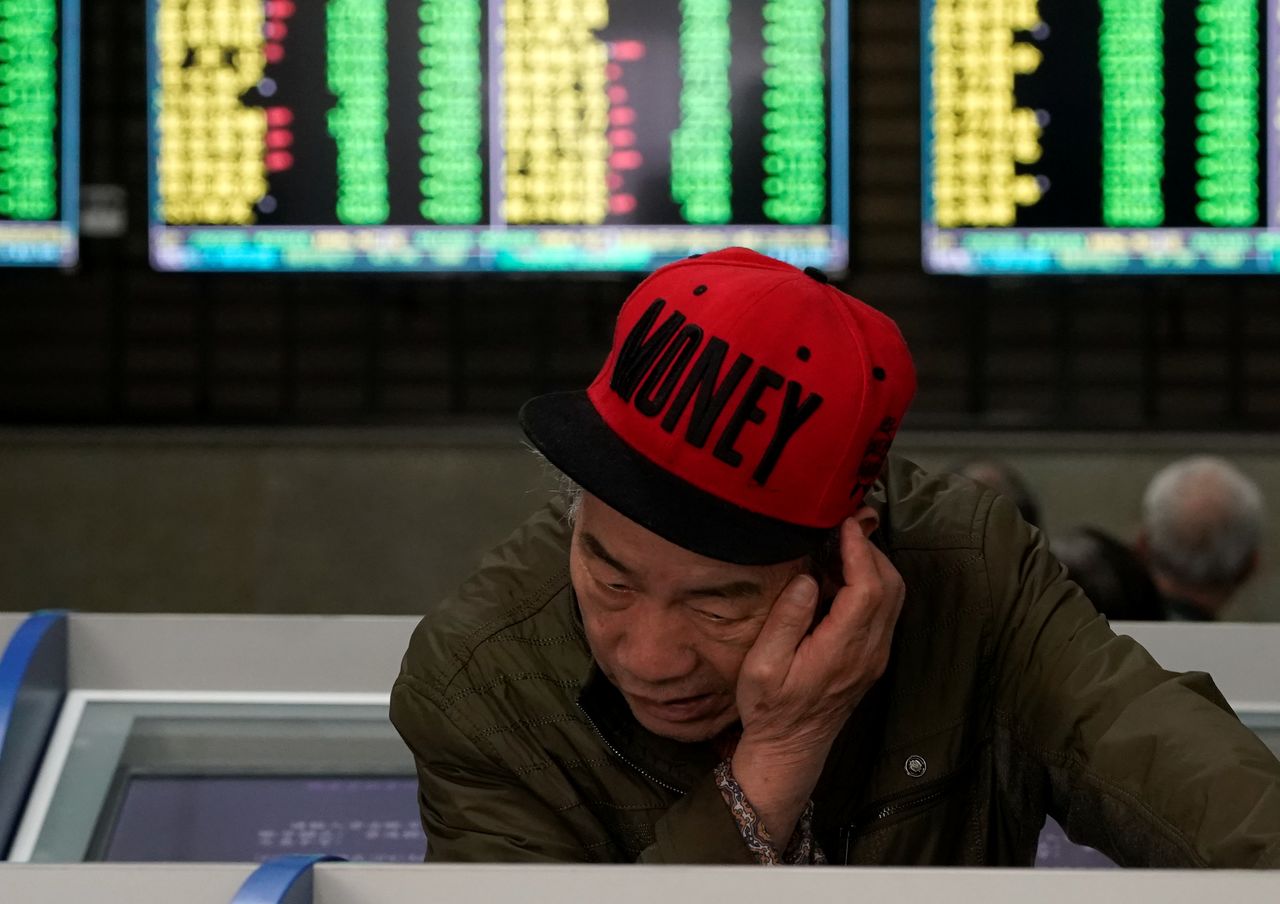Overseas investors turn net sellers of Chinese shares in March
Newsfrom Japan
- English
- 日本語
- 简体字
- 繁體字
- Français
- Español
- العربية
- Русский

FILE PHOTO: An investor looks at computer screens showing stock information at a brokerage house in Shanghai, China May 6, 2019. REUTERS/Aly Song
(Reuters) - Overseas investors have been heavy sellers of Chinese shares this month as a surge in COVID-19 cases on the mainland and possible reprisal for China's ties with Russia darken the outlook for the market.
The risk of a possible delisting of Chinese companies from U.S. exchanges has also prompted selling of their foreign-listed shares.
The selling drove Chinese stocks to 21-month lows with Hong Kong's stock market plumbing 2008 lows this week, forcing Chinese policymakers to step in with assurances of measures to provide support and stability.
Refinitiv data shows foreigners have sold $10.18 billion worth of mainland shares this month via Stock Connect, a key cross-border link between mainland and Hong Kong exchanges.
The previous time Chinese shares saw net selling was in September 2020, when foreigners dumped $4.8 billion.
Overseas investors bought $3.27 billion in the first two months of this year, the data showed.
Graphic: Foreign flows into Chinese stocks via Stock Connect: https://fingfx.thomsonreuters.com/gfx/mkt/byvrjegbave/Foreign%20flows%20into%20Chinese%20stocks%20via%20Stock%20Connect.jpg
A key reason for this month's collapse in Chinese shares has been the rapid spread of coronavirus, which fuelled worries over consumer spending and business operations.
The Russia-Ukraine conflict has also hit mainland shares, reviving worries about widening differences between Beijing and Washington as the United States raises concerns over China's alignment with Russia.
China's large and mid-cap stocks have fallen 15% this year, making Chinese stockmarkets the world's worst performers after Russia.
Graphic: Asia-Pacific equities' performance this year: https://fingfx.thomsonreuters.com/gfx/mkt/xmpjoeaykvr/Asia-Pacific%20equities'%20performance%20this%20year.jpg
Refinitiv IBES data shows analysts have cut forward earnings estimates for companies in the MSCI China index by 0.5% since the start of this month. At the start of the year, they expected the companies' earnings to grow 14.4% in 2022.
Sat Duhra, a portfolio manager at Janus Henderson Investors, said those earnings expectations had been high and there would be more cuts.
"When you see the Chinese consumer starting to get weak – lockdowns or whatever - then you start to see more earnings cuts coming through, and that will always be negative for the stocks," Duhra said.
However, the slump in shares has made the stocks cheaper.
The data shows Chinese shares' forward 12-month price-to-earnings ratio at 8.98, the lowest among major markets in Asia.
Graphic: Valuations of Asia-Pacific equities: https://fingfx.thomsonreuters.com/gfx/mkt/zjpqkormkpx/Valuations%20of%20Asia-Pacific%20equities.jpg
Mark Haefele, the chief investment officer at UBS Global Wealth Management, said he remained positive on China, despite the steep losses and expectations of more volatility in coming weeks.
"We retain our preference for cyclical and value sectors, particularly the energy sector," he said. "We like metals and mining, construction materials, and renewable energy operators. And we think food and beverage names with resilient earnings may find support amid the volatility."
Graphic: Southbound flows into Hong Kong: https://fingfx.thomsonreuters.com/gfx/mkt/egpbkqrbrvq/Southbound%20flows%20into%20Hong%20Kong.jpg
(Reporting By Patturaja Murugaboopathy, Gaurav Dogra in Bengaluru, Jason Xue in Shanghai and Kevin Buckland in Tokyo; Editing by Vidya Ranganathan and Clarence Fernandez)
(c) Copyright Thomson Reuters 2022. Click For Restrictions -
https://agency.reuters.com/en/copyright.html